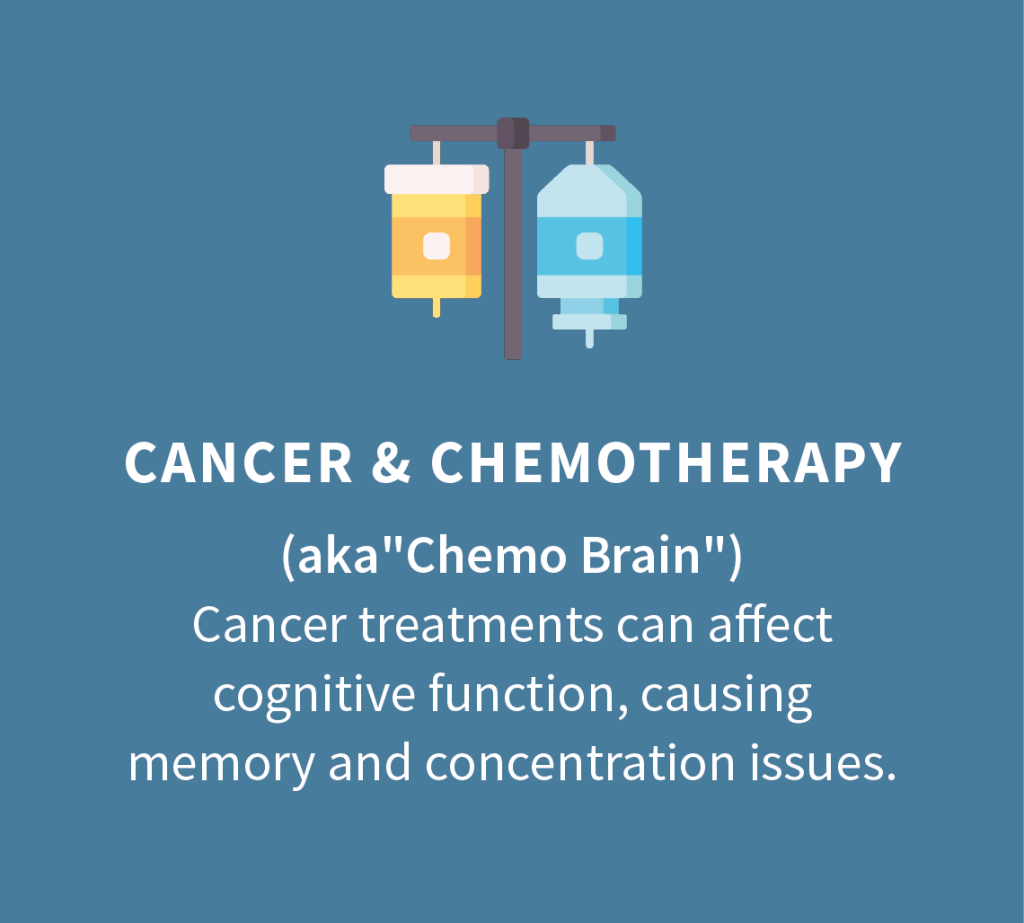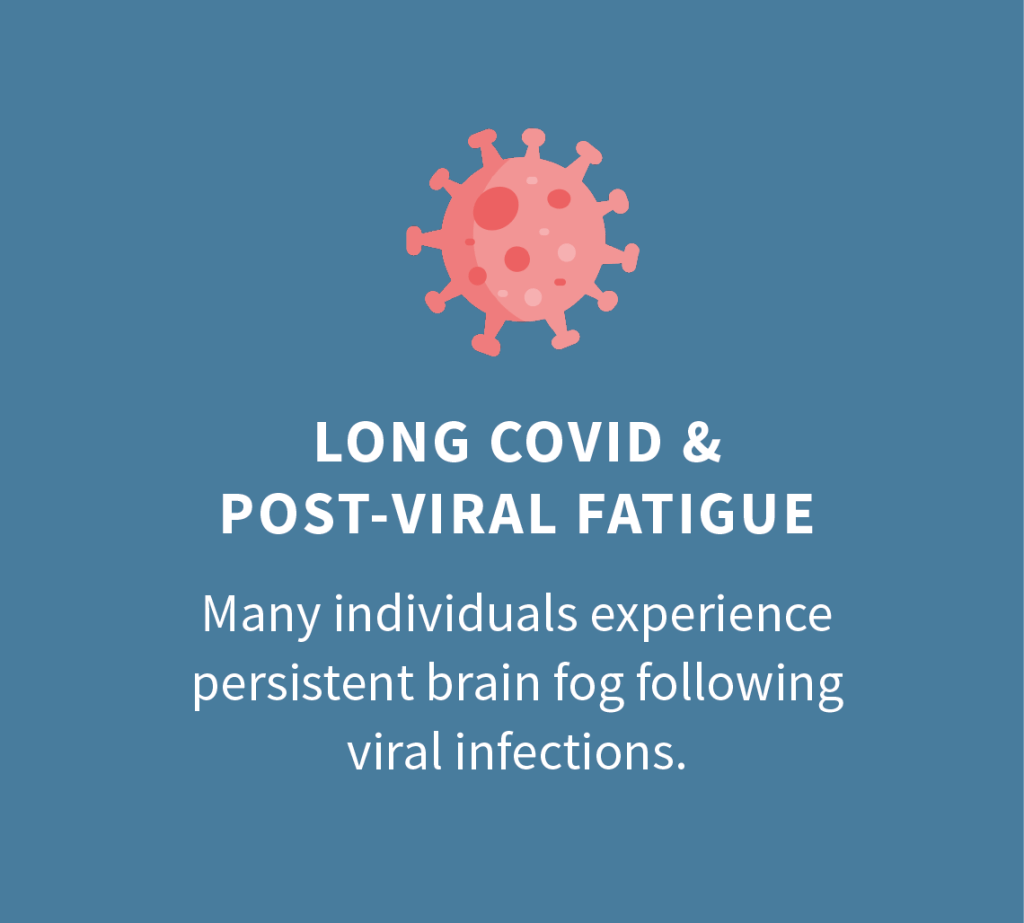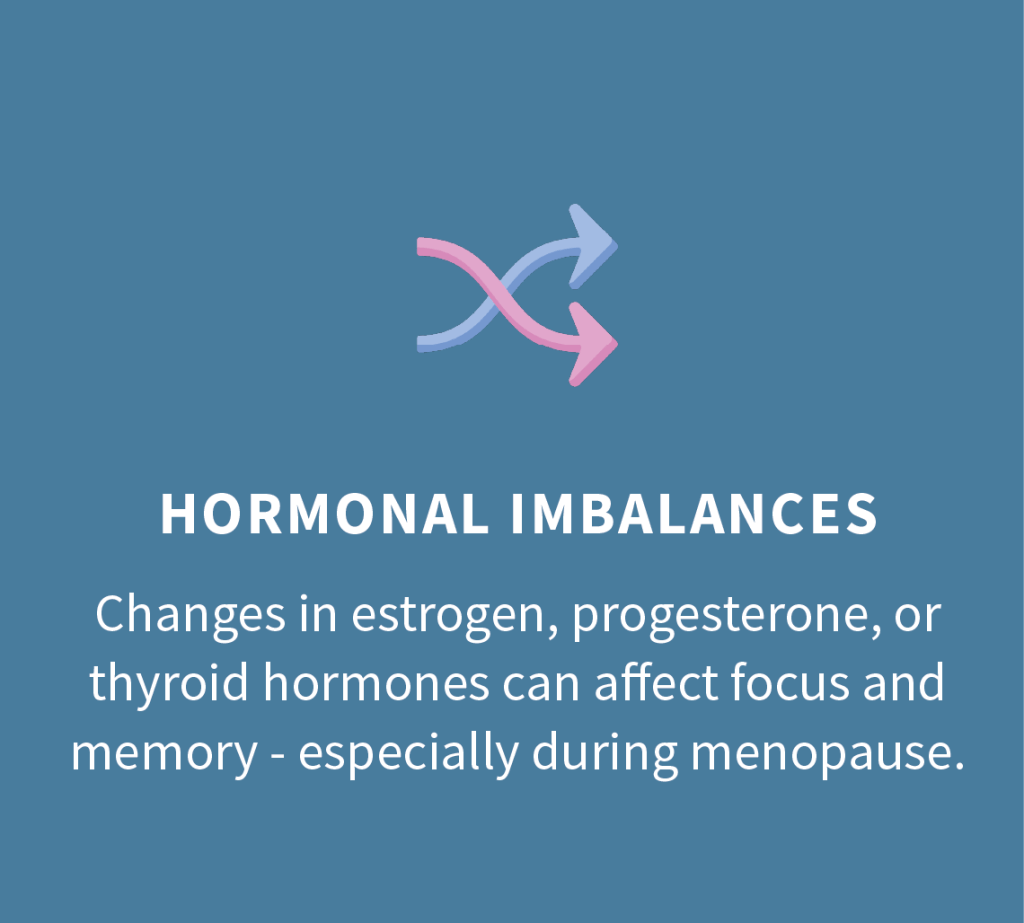
Brain Fog & What To Do About It
Ever find yourself forgetting a word mid-sentence, or walking into a room and thinking “what was I doing again?” Maybe you read the same sentence over and over, but it never sinks in? That’s brain fog. Brain fog can make even the simplest tasks feel frustrating and exhausting. It’s more than just being forgetful; Brain fog affects focus, memory, and decision-making.
Brain fog: a common experience
The Cleveland Clinic describes brain fog like this: “Your mind is in a constant state of buffering, like waiting for a video to load with an unstable internet connection.” That’s something everyone can relate to!
If you have brain fog (also known as mental fog), you’re not alone; it’s a common experience. About 28% of adults report an episode of brain fog every year. Brain fog isn’t an official medical diagnosis. Rather it’s a term used to describe a range of symptoms affecting thinking, memory, and concentration.
Let’s explore brain fog: what causes it, symptoms, and some practical ways to help clear some of the haze.
What causes brain fog?
Brain fog is often linked to medical conditions like multiple sclerosis, long COVID, ADHD, autoimmune diseases, hormonal changes, and chemotherapy treatments. It can also stem from stress, poor sleep, or even dehydration. While it may feel discouraging, the good news is that brain fog can be manageable depending on the cause.
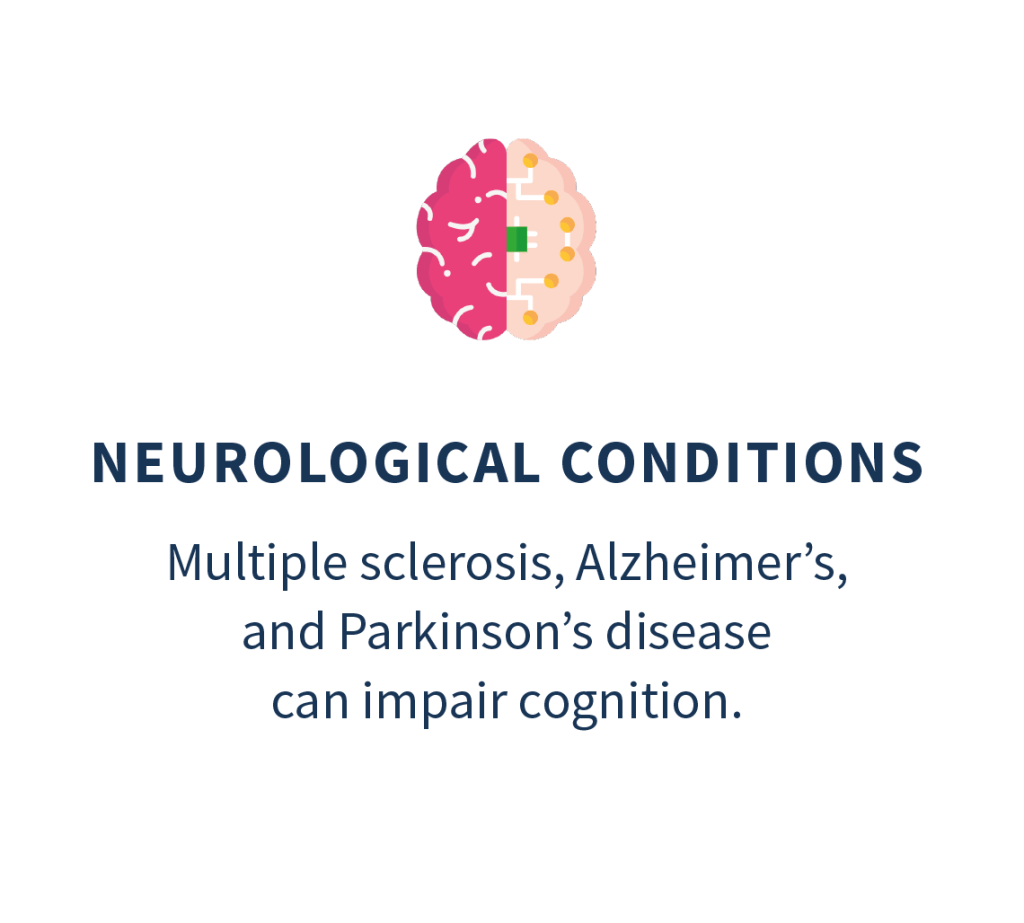
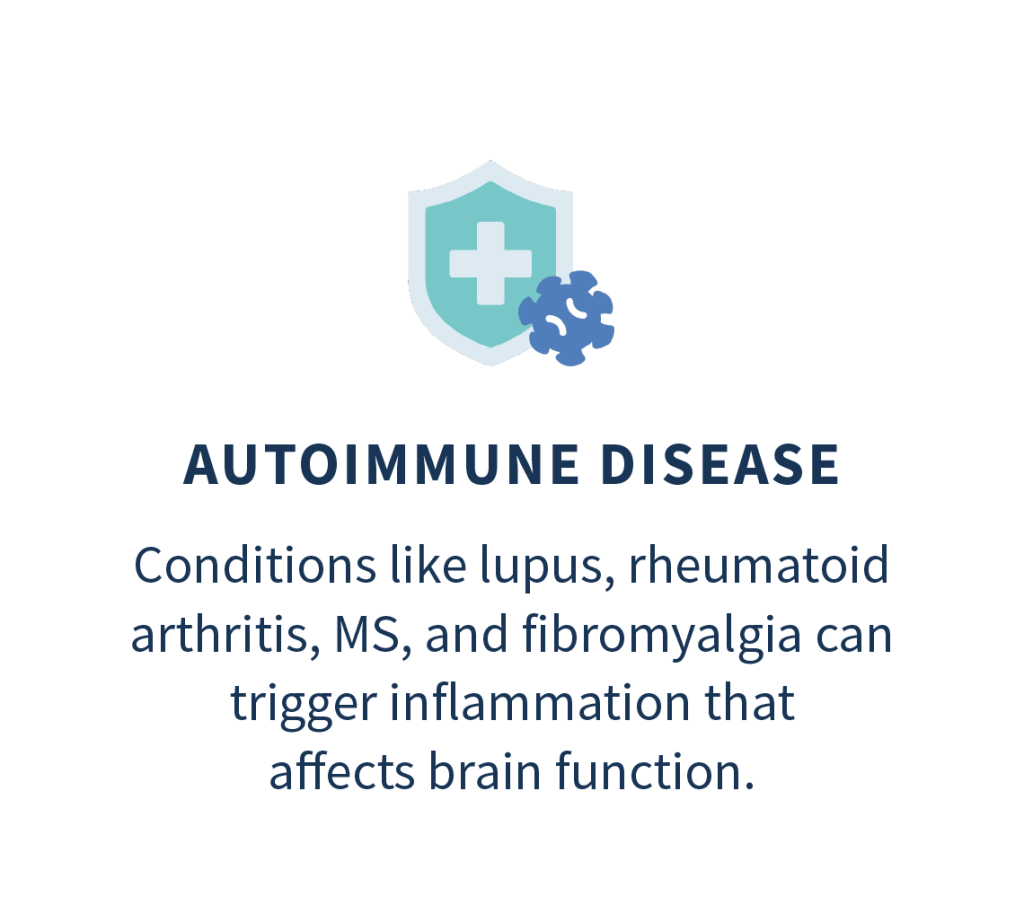
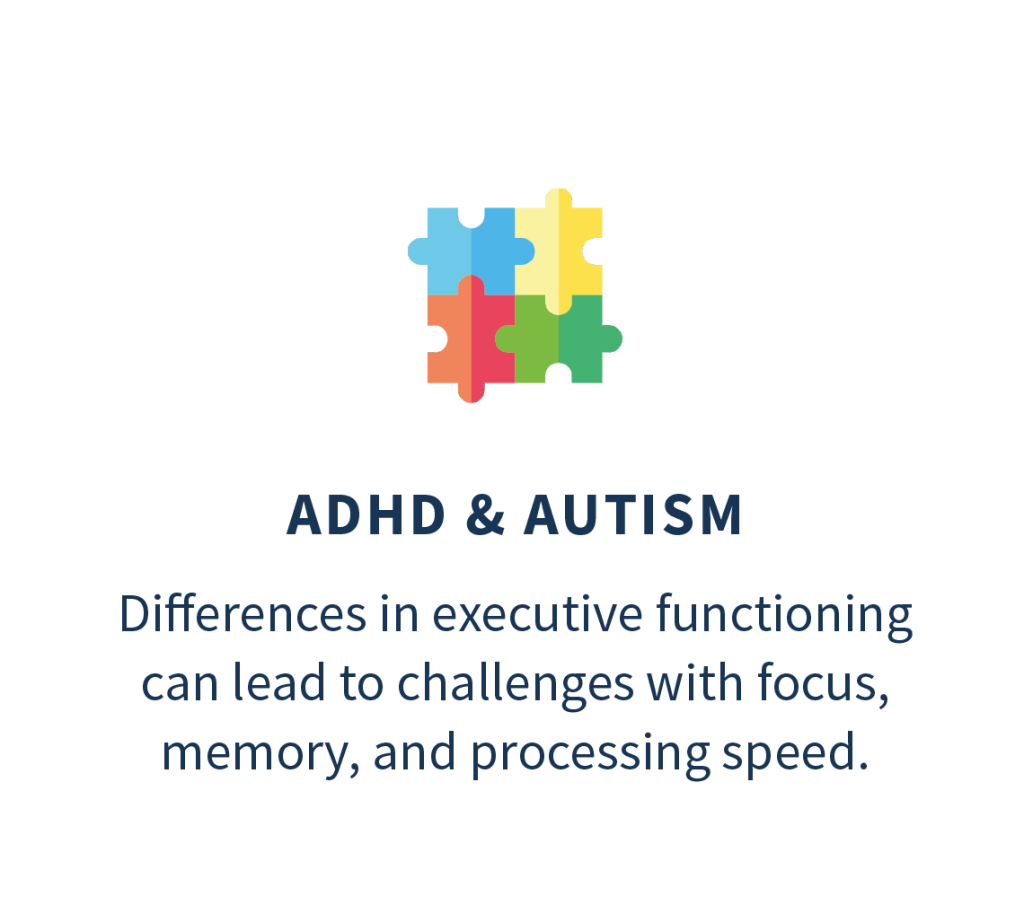
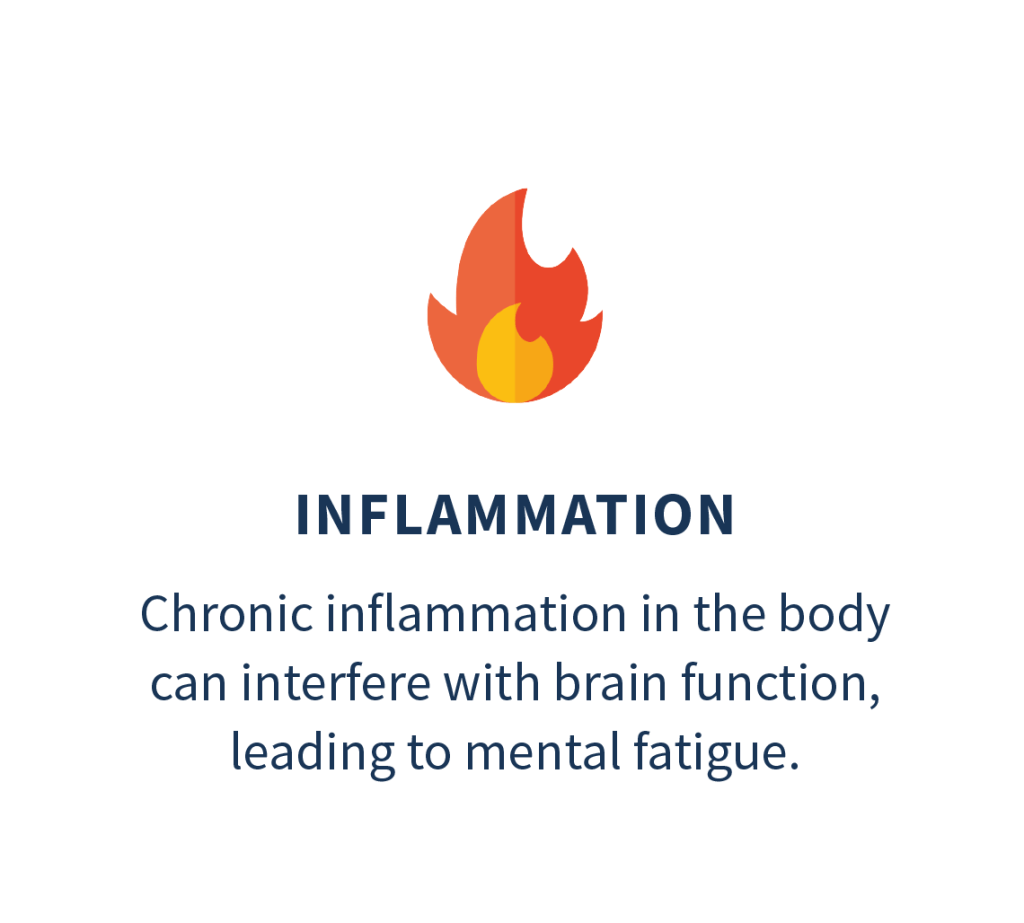
Menopause and brain fog
While brain fog isn’t the first menopause symptom you might think of, it’s very common. The decline in estrogen levels during menopause is believed to play a significant role in brain fog. Because most of your major organs have estrogen receptors, your body is very sensitive to changes in your estrogen level.
Research suggests that estrogen supports brain function by influencing neurotransmitters and blood flow, so its reduction can impact cognitive processing. However, these memory and concentration problems are generally temporary and tend to improve after the menopausal transition.
Brain fog and your environment
Environmental and lifestyle factors can also contribute to brain fog.
Air pollution
Exposure to high levels of particulate matter – both indoors and out – can cause decreased cognitive function.
Toxins & Chemicals
Heavy metals like lead and mercury, as well as toxic chemicals in insecticides and pesticides, can have negative effects on brain health and cognitive function.
Stress & Mental Overload
Chronic stress and burnout reduce cognitive performance and mental clarity.
Sleep Deprivation
Chronic stress and burnout reduce cognitive performance and mental clarity.
Nutritional deficiencies
Low levels of essential nutrients like B12, iron, vitamin D and omega-3 fatty acids can hinder brain function.

Common symptoms of brain fog
Many people dealing with brain fog often experience these symptoms, including:
- Memory issues: Frequent forgetfulness or difficulty recalling information.
- Lack of mental clarity: Feeling mentally “cloudy” or unable to think clearly.
- Poor concentration: Difficulty focusing on tasks or maintaining attention.
- Confusion: Experiencing disorientation or trouble processing information.
- Slower cognitive processing: Taking longer to perform routine mental tasks.
Brain fog: what to do about it
While addressing the root cause is essential, here are strategies to help manage your brain fog.
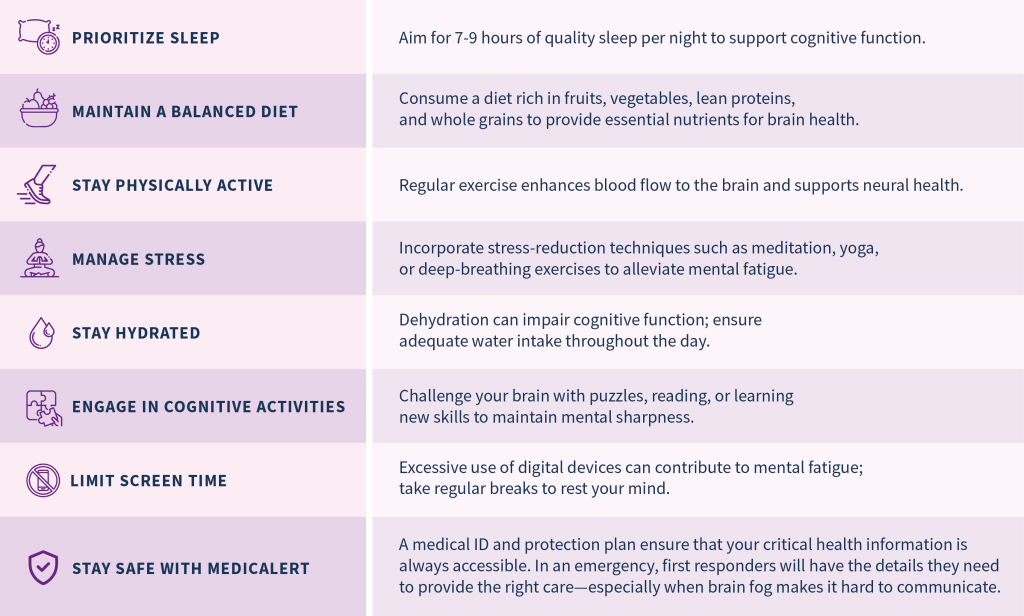
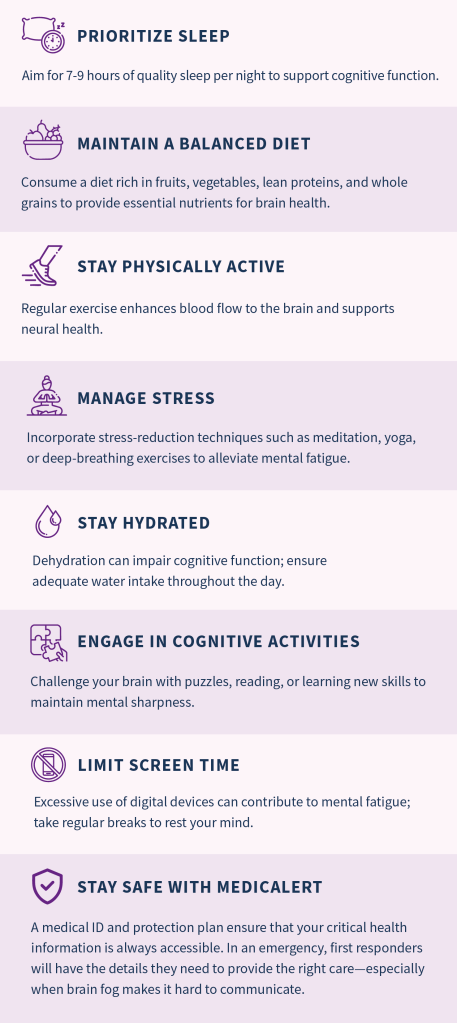
When does brain fog require medical attention?
If brain fog persists and impacts your activities of daily living (ADLs) – difficulty completing tasks like brushing your teeth or showering, forgetting appointments, or inability to focus and complete a task – talking to your healthcare professional can provide the right guidance and support. If you have other symptoms of brain fog that may not be as acute, be sure to discuss them with your primary care doctor at your next visit.
Brain fog is common and can make daily life feel frustrating. Don’t lose hope! Understanding what causes it can help you take control. Whether it stems from a medical condition, stress, or lifestyle factor – you can manage symptoms and boost mental clarity.
Live confidently with MedicAlert

MedicAlert Membership
24/7 Protection
MedicAlert Member Benefits
Enjoy life-saving benefits and store your comprehensive health history for emergency treatment.
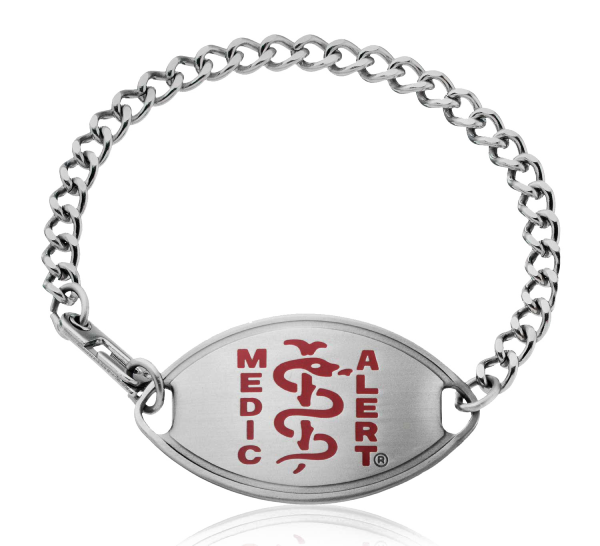
Wearable Medical IDs
for Any Condition
Wearable MedicAlert IDs
A medical ID communicates vital medical information to first responders so you can receive the care you need.

QR Code IDs
Scannable Medical IDs
QR Code Digital IDs
Perfect for people with multiple conditions and complicated histories.
